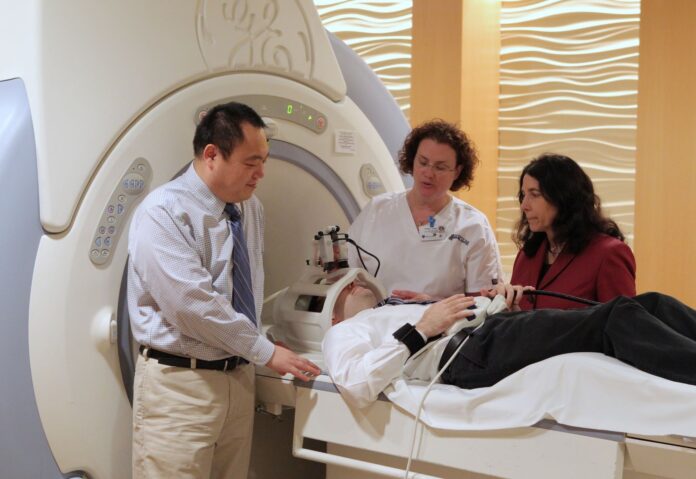
Assistant professor Xin Wang, Ph.D. in the psychiatry, neurosciences and radiology departments at the University of Toledo, is asking the public to volunteer for his group study of post-traumatic stress disorder (PTSD) related to motor vehicle accidents. The purpose of the study is to learn about the development of PTSD in the early post-trauma period in an effort to gain information that may contribute to finding early interventions.
Approximately 6 million Americans survive traumatic motor vehicle accidents every year, according to a report called “Psychological predictors of chronic posttraumatic stress disorder after motor vehicle accidents,” which was published by the Journal of Abnormal Psychology back in 1998. The traumatic stress of a motor vehicle accident is only temporary for most people; however, the report claims that about 17 percent to 25 percent of individuals in those accidents are likely to develop PTSD six weeks or more after the traumatic event.
“We’re basing our PTSD study around motor vehicle accidents, because they’re very common traumatic experiences,” Dr. Wang said. “After the accident, victims frequently get very nervous behind the steering wheel or while driving by the original crash area.”
These stressful reactions are just a few of the symptoms associated with PTSD. Generally, people with PTSD will experience hyperarousal, often repressing the traumatic event or obsessively recreating it in their minds.
Thirty-five patients have already been studied for the project. They were monitored for four months and were asked to fill out a survey before and after. A majority of the patients recovered fully from their motor vehicle accidents after three months, Dr. Wang said. Their stress levels decreased, the nightmares stopped, and they were able to return to a normal life. The other volunteers whose stress levels did not decrease after a few months were diagnosed with PTSD.
The University of Toledo, the Translational Research Stimulus Award from ProMedica Health System, and a William Bauer fMRI Research Fund are funding Dr. Wang’s project. By using UT’s cutting-edge neuroimaging technology, he hopes to explore the causes of PTSD by looking at the processes of the brain.
“We will repeatedly examine survivors of traumatic motor vehicle accidents with questionnaires and psychological assessments, recruited at the Emergency Departments of UTMC and Toledo Hospital, from the initial days to 12 weeks after the accidents,” Dr. Wang said in the group study outline. “Neural activity associated with the characteristic deficits of down-regulation of negative emotion of PTSD patients will be studied within initial days after the accidents and three months later, using a Reappraisal Emotion Regulation Task (RERT) during functional magnetic resonance imaging (fMRI).”
Xin Wang is not the only professor utilizing UT’s advanced neuroimaging equipment. The psychiatry department at the university’s medical center is using the technology to explore the genetic risk factors for PTSD in military veterans returning home. The neurosciences department is using UT’s MRI machine to research how limb amputations might cause changes in brain structure.
In order to complete his project, Dr. Wang is looking for subjects between the ages of 18 and 65 who have not experienced significant traumatic events within their lifetimes. Monetary compensation of up to $200 will be given to volunteers who complete all procedures at the University of Toledo Medical Center.
All study procedures are noninvasive and nonharmful, but pregnant women and individuals with metal devices in their bodies will not be allowed to participate due to safety concerns.
Anyone interested in participating in the study should contact the recruiter at (419) 383-4409 or at xin.wang2@utoledo.edu. Once individuals have passed the screening process, they will receive further instructions.
Study 106928 has been approved by the University of Toledo Biomedical IRB.






















